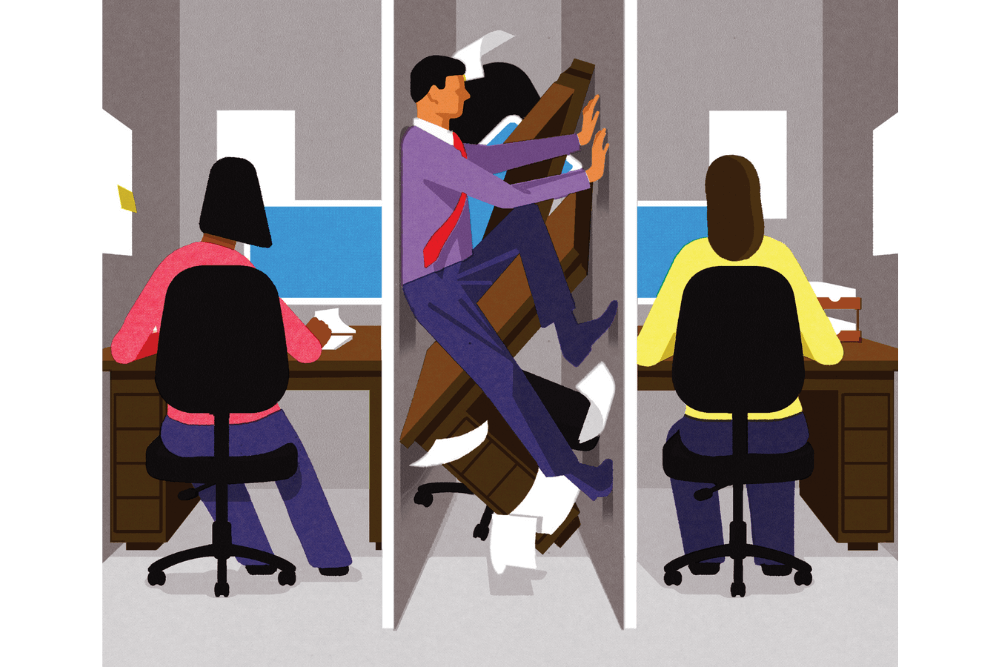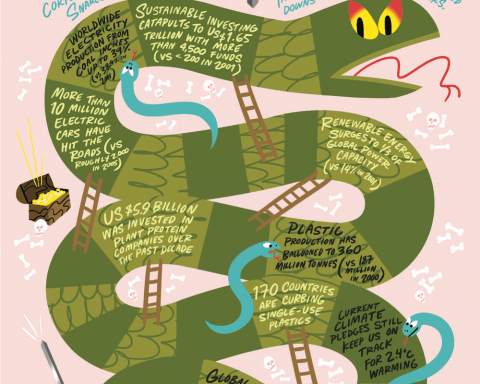The human brain doesn’t like uncertainty. Yet thanks to the pandemic, uncertainty now defines our collective experience. Add to that our separation from others, restrictions that prohibit our usual outlets for stress and, most significantly, the loss of much of our sense of control, and you have the definition of trauma.
As the COVID-19 pandemic wore on, we saw an astounding decline in the mental health of Canada’s working population. Burnout levels are triple those of 2019. Suicidal ideation among employees seeking counselling services has doubled. Even those who usually have good mental health are feeling more anxious and strained. Indeed, 80% of the working population indicates that the pandemic has negatively impacted their mental health.
Our mental health has always been important to our quality of life and participation in the economy, but until recently, it was largely considered an issue for only a troubled few. For the most part, it was taken for granted that the majority of us wouldn’t need mental health support. Now it’s a frequent topic of conversation in newsrooms and living rooms – and a central concern in a growing number of boardrooms.
For some time, investors and the broader public have been demanding that companies meet higher environmental, social and corporate governance (ESG) standards. While the urgency of climate change has thrust the “E” into the spotlight, the social component of ESG has recently garnered more intense attention.
Simply put, the “S” represents the human impact of business activities – everything from data security and human rights to diversity, equity and inclusion; health and safety; and workers’ well-being. Under that umbrella, we are now seeing an emerging “M,” for mental health – and calls for recognition of that M are growing louder every day. Corporations in industries as different as warehousing and high finance have recently been in the public eye for the gruelling number of work hours required of employees – a long-standing issue that has captured the attention of a public that also felt burned out by the pandemic.

Source: LifeWorks Mental Health Index
The pandemic also prompted many companies to take positive action, recognizing the importance of workers’ mental health to the resilience of their businesses. Some extended mental health support to part-time and contract workers, who previously were not eligible.
LifeWorks (formerly Morneau Shepell)’s monthly Mental Health Index for June 2020 found that workers who indicate strong workplace support for mental health fared significantly better in terms of their overall mental health during the pandemic than those with employers who were seen as either inconsistent or inadequate in their support.
As our economies become more knowledge-based, a spotlight is placed on human capital, putting greater emphasis on worker mental health. On the opportunity end of the spectrum, Google’s Project Aristotle (an internal study that looked at what made 180 Google teams effective) showed that psychological safety was the top characteristic of the highest-functioning teams. As well, several studies have shown that companies that score well on their investment in worker mental health saw average stock price increases of up to three times that of their peers. Well-being supports offer workers the mental freedom to innovate as well as the energy to focus, all of which are factors in business success.
On the other end of the spectrum, a Lancet Commission report projected that between 2011 and 2030, the number of working days lost to mental health conditions will cost the global economy US$16 trillion in lost output. For companies, financial impacts can be seen in the rising costs of health and disability claims, accidents, absences, reduced productivity, as well as the loss of talent. LifeWorks research found that three in four workers (76%) say that the way a company supports mental health is a factor in whether or not they will stay.

Reputational risks are also a concern. One U.S.-based suitcase company suffered a 90% drop in sales after it was accused of having a toxic work environment. Since then, the company’s new CEO has been focused on building a culture of well-being in order to rebuild the business, emphasizing work-life balance and expanding policies that support leaves, including 16 weeks of paid leave for parents of any gender, and wellness days off.
The swift and very significant drop in ratings that followed reports of a toxic work environment at the Ellen DeGeneres Show is another very public example of the intensity of public sentiment on this topic. It has been said that the “S” gives companies the licence to operate; it also appears that failure in this respect can be felt quickly.
Society is evolving, as are business models and therefore business risks. The Sustainability Accounting Standards Board (SASB) has taken a leadership role in responding to the need for evolution by filling critical gaps and modernizing ESG disclosure standards. SASB recently launched a project that addresses human capital management, with the noteworthy inclusion of workplace mental health.
“SASB was driven to take action by investors who indicated that workplace mental health issues are important to them and needed to be understood at an industry level,” notes Kelli Okuji Wilson, SASB’s project lead for the human capital project. SASB completed public consultations on human capital and worker mental health in February and is continuing with next steps.
Coalitions of employers are also taking action. One Mind at Work convened a group of top companies, including Bank of America, Johnson & Johnson and EY (Ernst & Young) in a working group to advance and shape the progress of mental health in ESG. They’re not only taking action within their own firms but are hoping to shape broader industry-wide approaches to workplace mental health.
Doing the right thing is good for business. ESG-aligned companies wouldn’t be receiving the attention they do now from global investors if they didn’t produce attractive financial outcomes. ESG makes sense. We know good governance and responsible engagement with the environment ensure a company’s sustainability. The social component of ESG, however, could be the most powerful – and the most indicative of near- and long-term business success. Happy customers are essential to the bottom line. Happy and healthy workers are essential to a functioning business.
Savvy business leaders know that boosting employee wellness doesn’t just reduce costs and reputational risk. It drives business success – all while saving lives.
Looking to improve mental health standards
at your workplace? Here’s what to keep in mind.
- Mental health is an issue for all workers, not a select few. Make sure your company supports mental well-being as well as the needs of those with mental illness, and every point in between.
- Managers are key to any human capital issue. Ensure that managers are trained and equipped to understand the value of workplace mental health and deal appropriately with mental health issues when they arise.
- Stigma is isolating and prevents workers from leveraging mental health resources. Review workplace policies, communications and norms, and seek opportunities to reduce stigma.
- If you are not measuring, you are not managing. Make sure you have measures in place to understand your risk, progress and whether your practices support a positive impact.
Paula Allen is the global leader and senior vice-president of research and total well-being at LifeWorks (previously Morneau Shepell).
This story appears in the upcoming Summer 2021 Issue of Corporate Knights.







